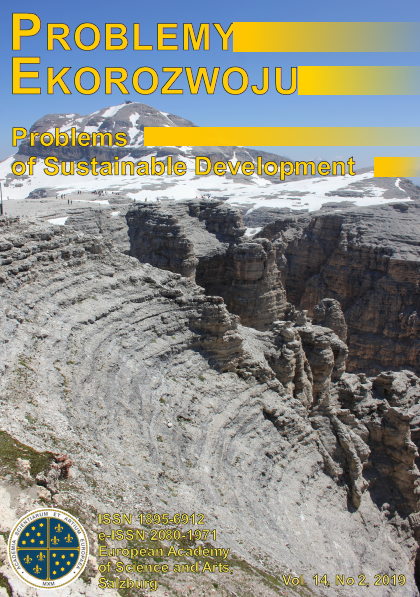ACS Z.J., SZERB L., 2007, Entrepreneurship, economic growth and public policy, in: Small Business Economics, 28(2), p. 45-51.
ADEKUNLE A.A., FATUNBI A.O., JONES M.P., 2000, How to set up an innovation Platform, Forum for Agricultural Research in Africa.
ANTONOVA A., GOUROVA E., NIKOLOV R., 2011, Review of technology solutions for knowledge management, in: Iet International Conference on Intelligent Environments, 2, p. 39-44.
CHEN B., LUO P.L. ,2014, An empirical study on factors impacting the performance of industrial innovation platforms in Shanghai Bio-pharmaceutical industry, in: Shanghai Management Science, 36(3), p. 71-78.
CHEN B., 2012, Research on the Governance Model of Industrial Innovation Platform, in: Lanzhou Journal of Science, 9, p. 85-90.
CHESBROUGH H.W.,2003, The era of open innovation, in: MIT Sloan Management Review, 44(3), p. 35-41.
COOKE P., 2012, From Clusters to Platform Policies in Regional Development, in: European Planning Studies, 20(8), p. 1415-1424.
EISENMANN T.R., PARKER G., VAN ALSTYNE M., 2008, Opening Platforms: How, When and Why, in: Harvard Business Review, 12(8), p. 9-30.
FANG Y.H., WANG L., TAN Q.M., 2017, Research on Operation Mechanism and Evaluation Index System of Military-civilian Integration Industry Innovation Platform, in: Intelligence Magazine, 36(12), p. 198-206.
GAO C.S., 2011, Research on Strategic Emerging Industry Innovation Platform-Taking Nuclear High Base Industry as an Example, Tianjin University.
GASSMANN O., 2006, Opening up the innovation process: towards an agenda, in: R&D Management, 36(3), p. 18-27.
HARMAAKORPI V.K., PEKKARINEN S.K., 2006, Regional development platform analysis as a tool for regional innovation policy, in: European Planning Studies, 14(8), p. 1085-1104.
JAMES L., BARNES M.Y., ZARRUGH D.J., LAWRENCE R.L., 2000, Government-university -industry response to critical manufacturing innovation needs, in: Industry and Higher Education, 14(2), p. 73-91.
MUELLER P., 2006, Exploring the knowledge filter: how entrepreneurship and university-industry relationships drive economic growth, in: Research Policy, 35(10), p.34-37.
ROHRBECK R., PIRELLI L.H., 2010, The European Institute of innovation and technology: how to steer a multi-stakeholder innovation, DIME Conference: Organizing for networked innovation, Milano, Italy, April, p. 15-36.
SHAH R., BALL G.P., NETESSINE S., 2017, Plant Operations and Product Recalls in the Automotive Industry: An Empirical Investigation, in: Management Science, 63(8), p. 2439-2459.
SPAAPEN J., DROOGE L.V., 2011, Introducing productive interactions in social impact assessment, in: Research Evaluation, 20(3), p. 211-218.
SUN Q., WANG H.Q., 2010, Research on the System and Operating Mechanism of Local Science and Technology Innovation Platform, in: China Science and Technology Forum, 3, p.16-19.
UPTON S., VALLANCE P., GODDARD J., 2014, From outcomes to process: Evidence for a new approach to research impact assessment, in: Research Evaluation, 23(4), p. 352-365.
WANG A.Y., SI C.L., LUO P.L., 2006, On relational contracts in R&D outsourcing, in: Science Research Management, 27(6), p.103-108.
WANG X.J., LIUJ., MA C., 2016, A research on the cluster competitiveness evaluation of the Chinese automobile industry based on cuckoo-AHP, in: Chinese Management studies, 10(4), p. 746-769.
WEST J., GALLAGHER S., 2006, Challenges of open innovation: the paradox of firm investment in open source software, in: R&D Management, 36(3), p. 319-331.
XIA H.X., TAN Q.M., Wang B.,2017, Research on New Industrial Innovation Platform for High-end Equipment Manufacturing Industry, in: Scientific Research Management, 38(12), p.1-10.
YAO M.M., WU X.B., S Y.J., 2014, Matching of Business Model Design and Technology Innovation Strategy from the Perspective of Technology Catching, in: Management World, 10, p. 24-32.
YU L.F., 2017, Research on Relational Risk Management of Industrial Collaborative Innovation Alliance, Nanchang University.



